...the fifth installment in a series of blogs recounting my experiences working in various Waiver theatres in Los Angeles. Go here to read earlier entries...
My penultimate appearance in a Waiver Theatre production signalled a move away from the comfort zone of working with friends, which was probably a good thing. Other than my first foray into Waiver theatre, at least a decade earlier, this was the first time I landed a Waiver gig on the strength of an audition. And it may have been my most prestigious appearance during my Waiver career. The show was the American premiere of a 400-year old chestnut with questionable pedigree. But lots of moxie.
 |
| The household help of The Puritan Widow. I'm on the left. |
 |
| Annie Potts appeared at the Globe, years before becoming a Designing Woman. |
 |
| Waiver Impresario R. Thad Taylor, with the mock-up of his Globe Playhouse, which produced important classical works during Waiver's heyday. |
 |
| John Ritter stretched his classical muscles at The Globe before joining the land of sitcom. |
These are plays which are UNcertainly connected to Shakespeare, that is, texts in which the Bard may have had a hand, but did not create entirely on his own. Pericles and Two Noble Kinsmen are the best known of these apocryphal plays (and are now routinely included in Shakespeare's Complete Works), but there are many more plays in which Shakespeare's involvement is still being debated.
 |
| This title page caused the play to be associated with Shakespeare. |
 |
| The actors' view of the audience at the Globe Playhouse. |
 |
| One of several comedic fights in The Puritan. |
My audition skills, then and now, are pretty damn poor, and I auditioned for dozens of Waiver shows without getting so much as a callback. So snagging a role at The Globe was a proud moment in my young career. The role was a small one, but it had a bit of importance in the theme of the piece, which illustrated the hypocrisy of the puritan movement during the Jacobean period. My role, provocatively named Simon St. Mary Ovaries, was a servant to the title character, and I showed up occasionally to spout puritan nonsense while everyone else did the opposite.
 |
| I don't remember why I disapproved of the marriage of The Puritan's daughter. I never went anywhere without my prayer book. |
 |
| This cast partied well. I enjoyed their company, but can't remember a single name. |
I was pleased to make the acquaintance of these folks, who really knew how to party, and it was an unusual change for me to be performing with a group of strangers. I knew only one other actor going into the production, the lovely and talented Kurt Hansen; Kurt and I were both alumni of Cal State University, Northridge, though we had attended the school several years apart.
I was to get to know Kurt much better in a few years, when we appeared together in an original musical at the Granada Theatre, but that was not a Waiver production, so that story is not part of this series.
 |
| The lobby of the Globe Playhouse |
 |
| The Globe Playhouse has changed names several times since its success as a classical house. Currently, it's home to a lesbian theatre group and film festival. |
 |
| Our program claimed the production was a World Premiere. It wasn't, but it was surely the American one. |
Several of my castmates from The Puritan attended that audition, we all felt very confident that the producers would be thrilled to cast us all, since we were all working at such a prestigious theatre as The Globe Playhouse.
 |
| The Globe's The Tempest. |
But as it turned out, I was the only one of us to snag a role; my Puritan cohorts dodged a bullet when they were not cast in Mandragola, while that bullet hit me squarely between the eyes. Stay tuned for the sixth and final entry of My Waiver Games.















































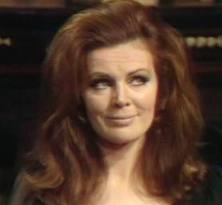







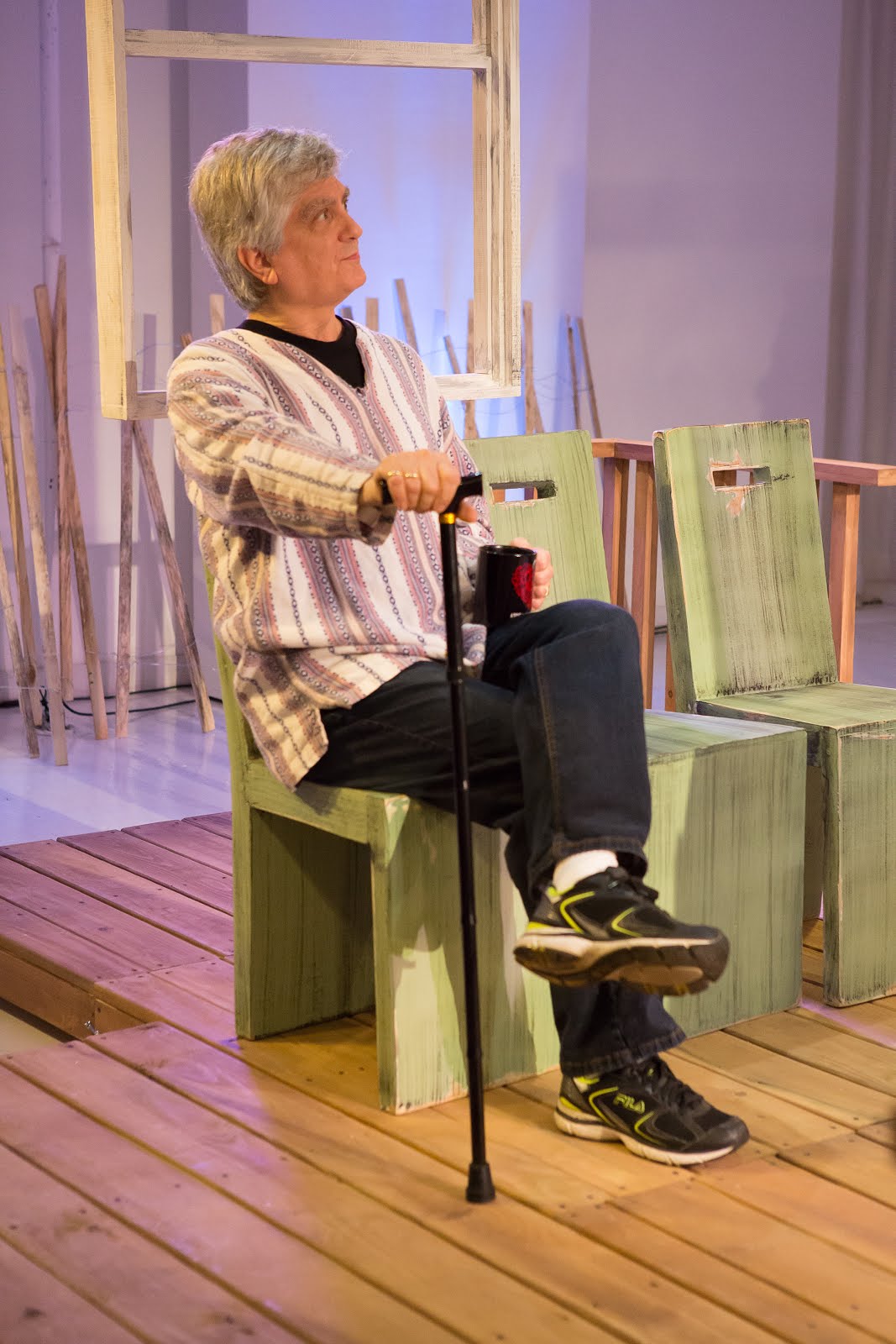
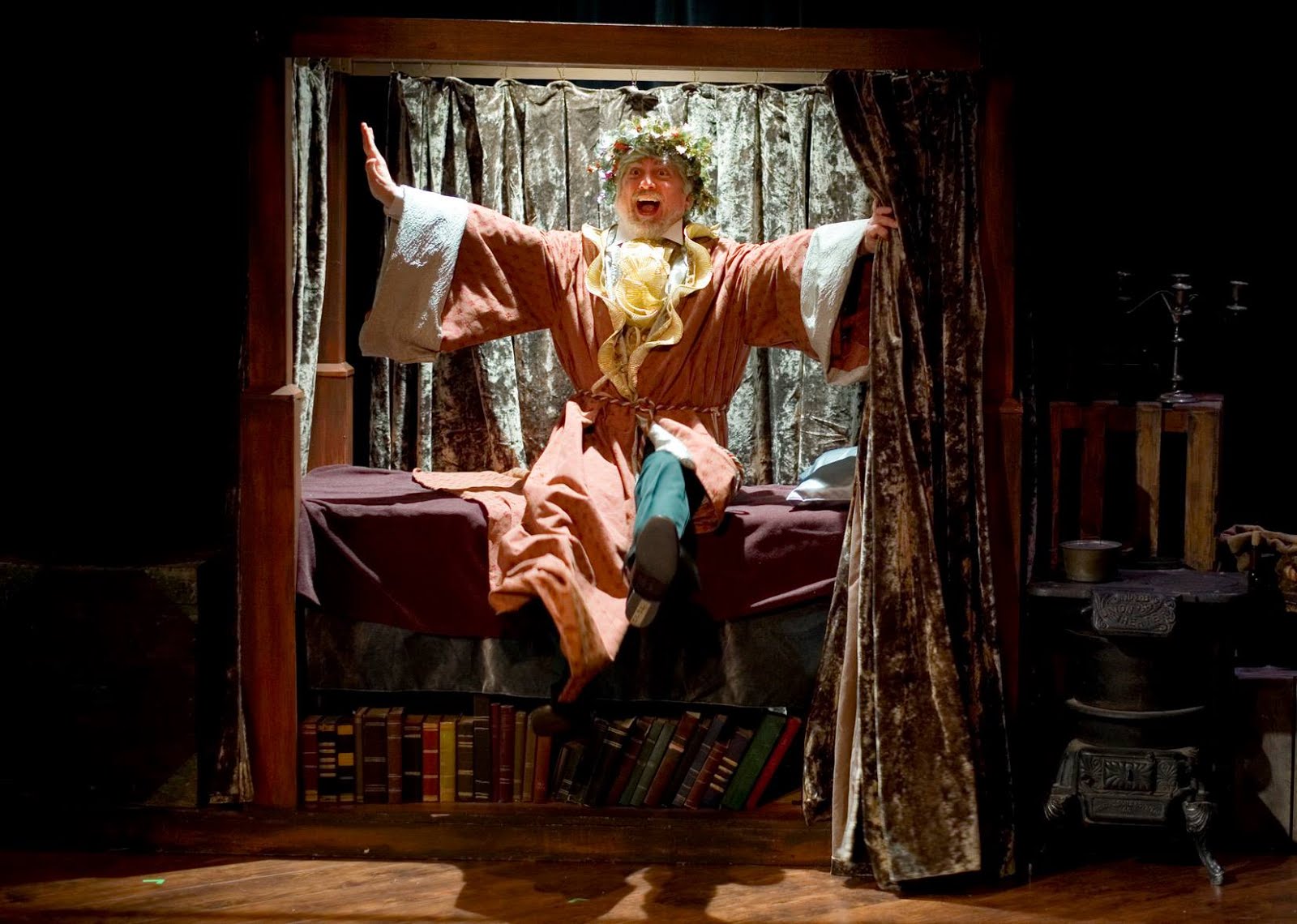
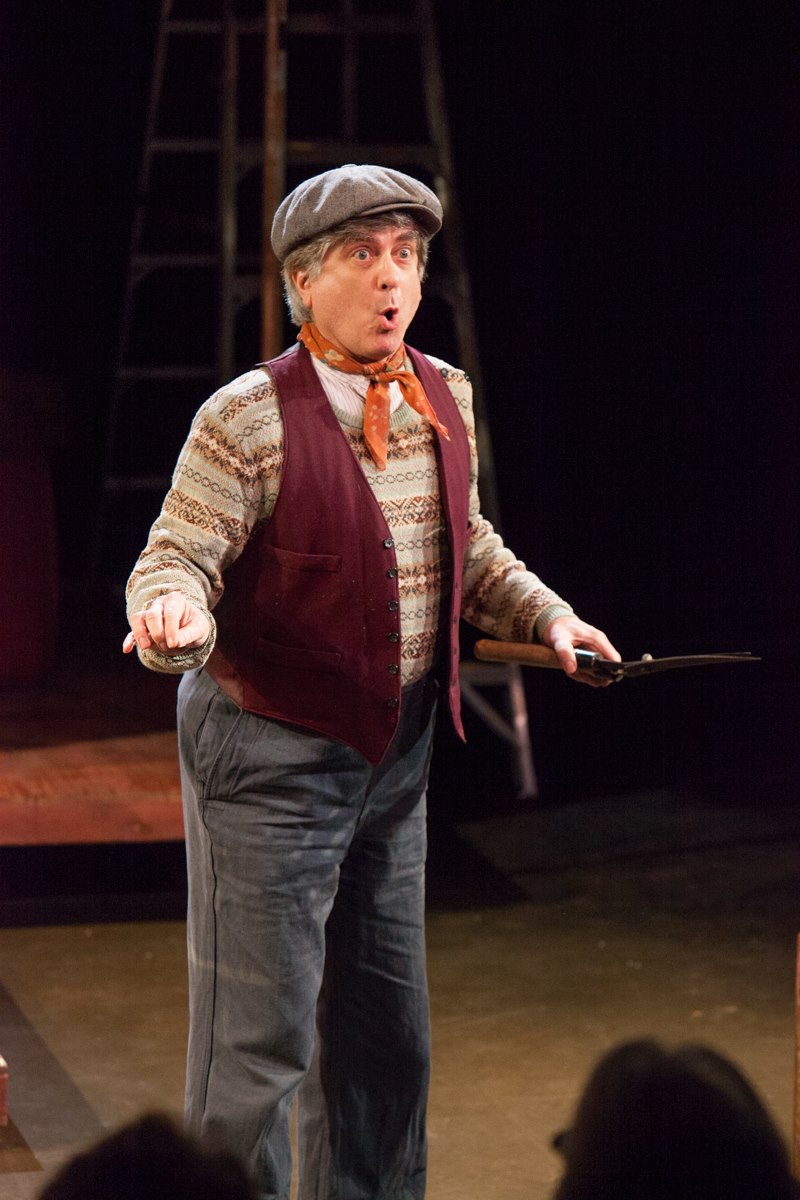
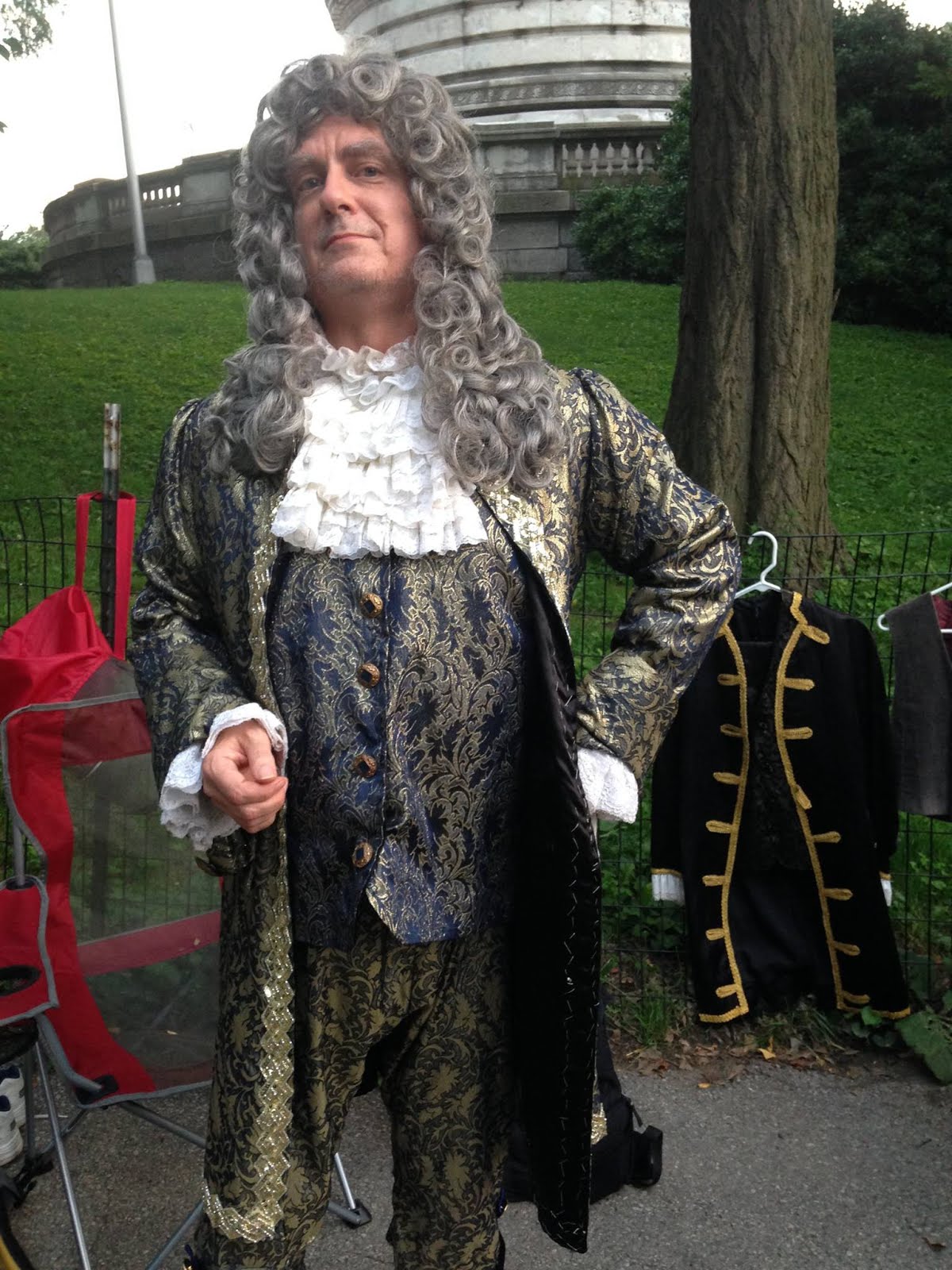
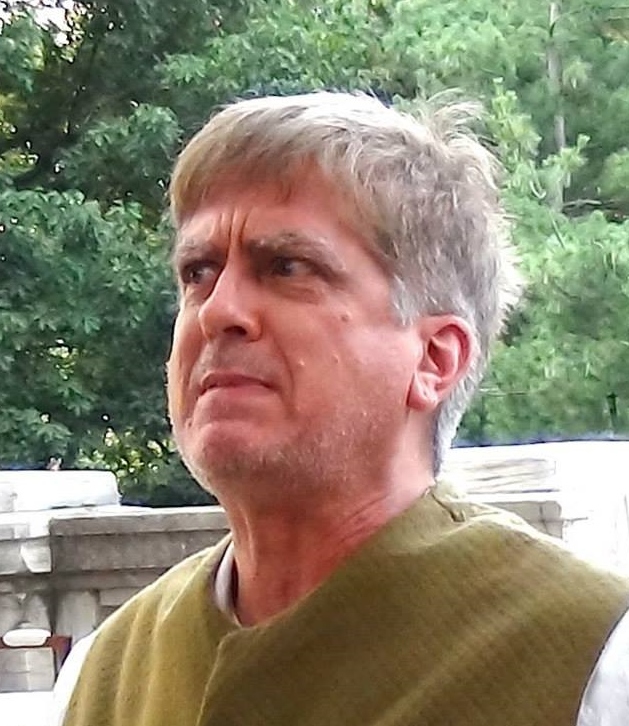
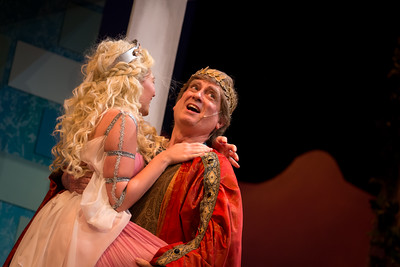
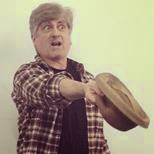
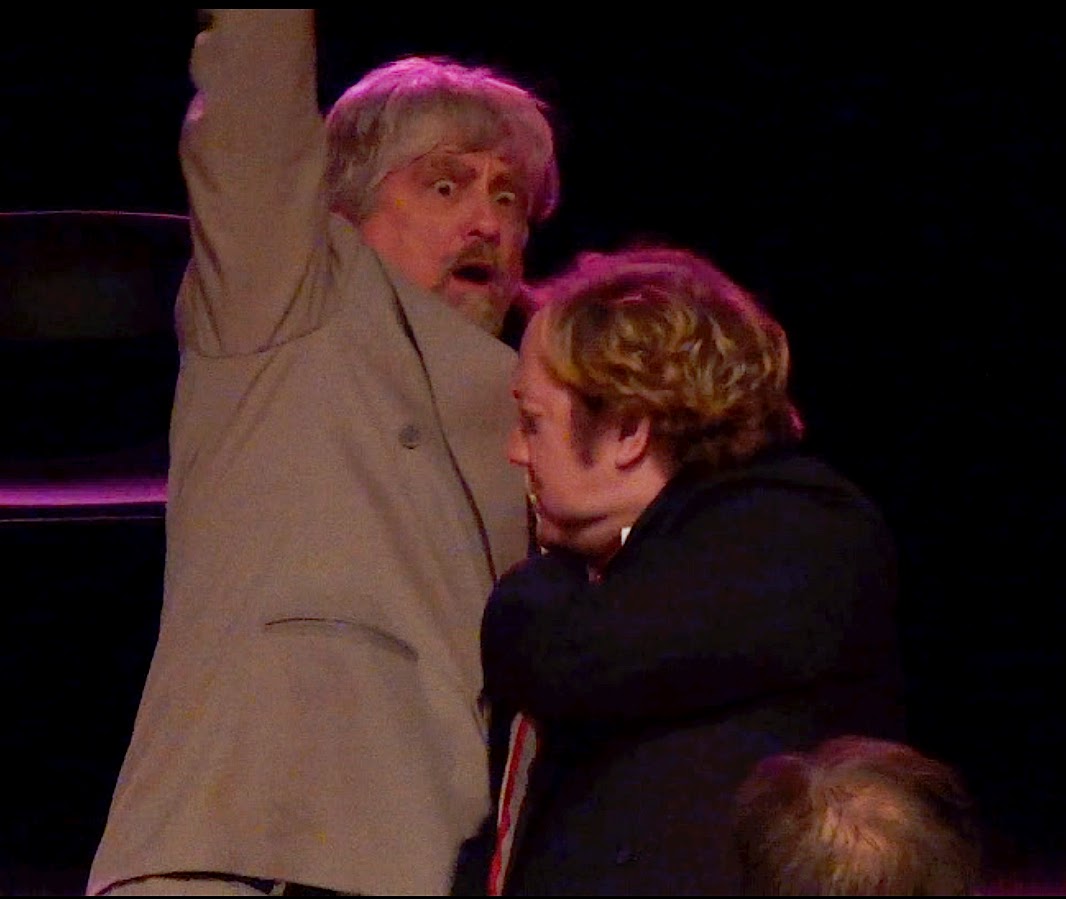
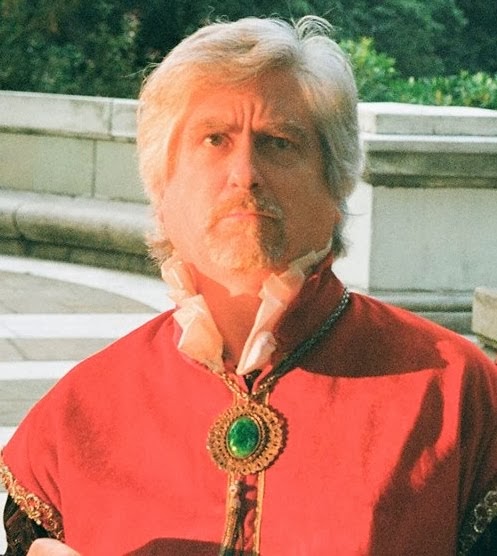
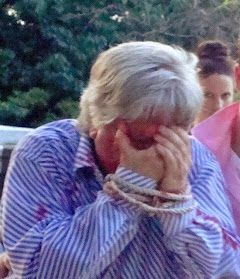













,+Olney+Theatre+Center,+2004.jpg)



,+Shakespeare+Theatre+Company,.jpg)


,+Warehouse+Theatre,+1999.jpg)
,+Are.jpg)
,+Everyman+Theatre,2002.jpg)
,+First+Nationa.jpg)
,+Shakespeare+Theatre+Company,.jpg)
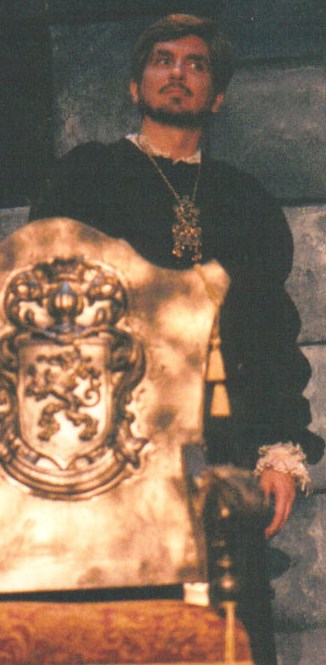





,+Granada+Th.jpg)
,+Globe+Playhouse,.jpg)
,+CSUN,+1976.jpg)


